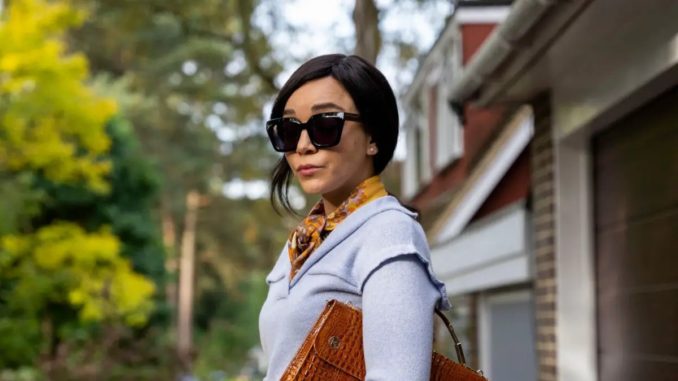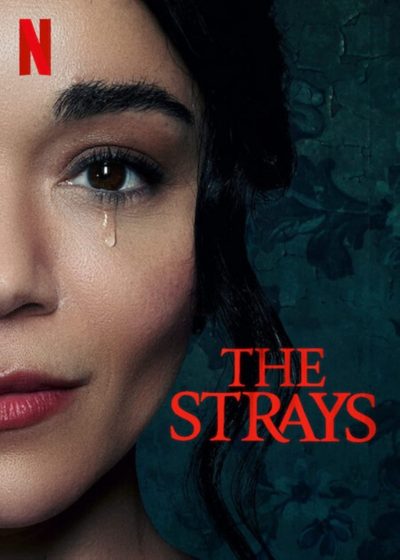
Rating: D
Dir: Nathaniel Martello-White
Star: Ashley Madekwe, Bukky Bakray, Jorden Myrie, Justin Salinger
It was with a sinking feeling that I realised what I was in for, when the film all but opened with a newspaper headline: BLACK KIDS BETRAYED BY SCHOOLS. It’s clear the maker saw Get Out, and decided he could also use the medium of the horror genre to execute a social critique of race in modern society. Except Martello-White has no sense of nuance, and compared to Jordan Peele’s work, this is about as subtle as a Deptford bus-stop stabbing. Get Out works as a horror film, even if you ignore (or are oblivious to) the racial elements. This doesn’t. It’s basically a crap home invasion film, where the action doesn’t start until over an hour in.
Our story begins with Cheryl (Madekwe) walking out on her failed inner-city life and children. Years later – while the exact amount is unclear, I’d say probably 15-20 – she has reinvented herself as Neve, now deputy headmistress at an expensive private school, married to a white insurance broker (Salinger), and with two additional teenage kids. She’s basically abandoned her racial identity for a fictitious persona and a cushy, middle-class lifestyle. It is all about to come crashing down though, as her two original children, Carl (Myrie) and Dione (Bakray) show up. They’re none too happy about having been abandoned all those years ago, and Neve’s efforts to buy them off do not help matters. This eventually leads to the situation mentioned, though my first reaction when the credits rolled was, “Worst home invaders ever.”
 There’s hardly an element here that makes sense. Why does Cheryl run away? Sure, her life is far from perfect: yet it seems no worse than many working-class people (of all races), who simply cope with it. How does she transform into a suave middle-class deputy head? How do her children find Neve, decades later? What are they trying to achieve by acting like bad horror tropes? These are all questions I found myself asking, when not distracted by the fact Madekwe only looks a couple of years older than her supposed son. Seriously, she doesn’t seem old enough to have had one brood of kids, never mind two by different fathers. I was half-expecting a Shyamalan-esque revelation she was a vampire.
There’s hardly an element here that makes sense. Why does Cheryl run away? Sure, her life is far from perfect: yet it seems no worse than many working-class people (of all races), who simply cope with it. How does she transform into a suave middle-class deputy head? How do her children find Neve, decades later? What are they trying to achieve by acting like bad horror tropes? These are all questions I found myself asking, when not distracted by the fact Madekwe only looks a couple of years older than her supposed son. Seriously, she doesn’t seem old enough to have had one brood of kids, never mind two by different fathers. I was half-expecting a Shyamalan-esque revelation she was a vampire.
The biggest misstep is probably after the kids finally confront their absentee mother. Rather than continuing forward, we are instead diverted into a lengthy flashback detailing the arrival in town, befriending of their half-siblings in town, etc. It’s unnecessary: while it does generate some kind of sympathy through adopting their perspective, this is then all poured down the drain, as Carl reverts to horror evil cliché down the stretch. By the end, I had no clue at all, to whom the film wanted you to relate. Though I’m fairly sure they were black, the creator having made his position on that topic abundantly clear. Still, it’s nice to know that bad horror does not discriminate by race.
